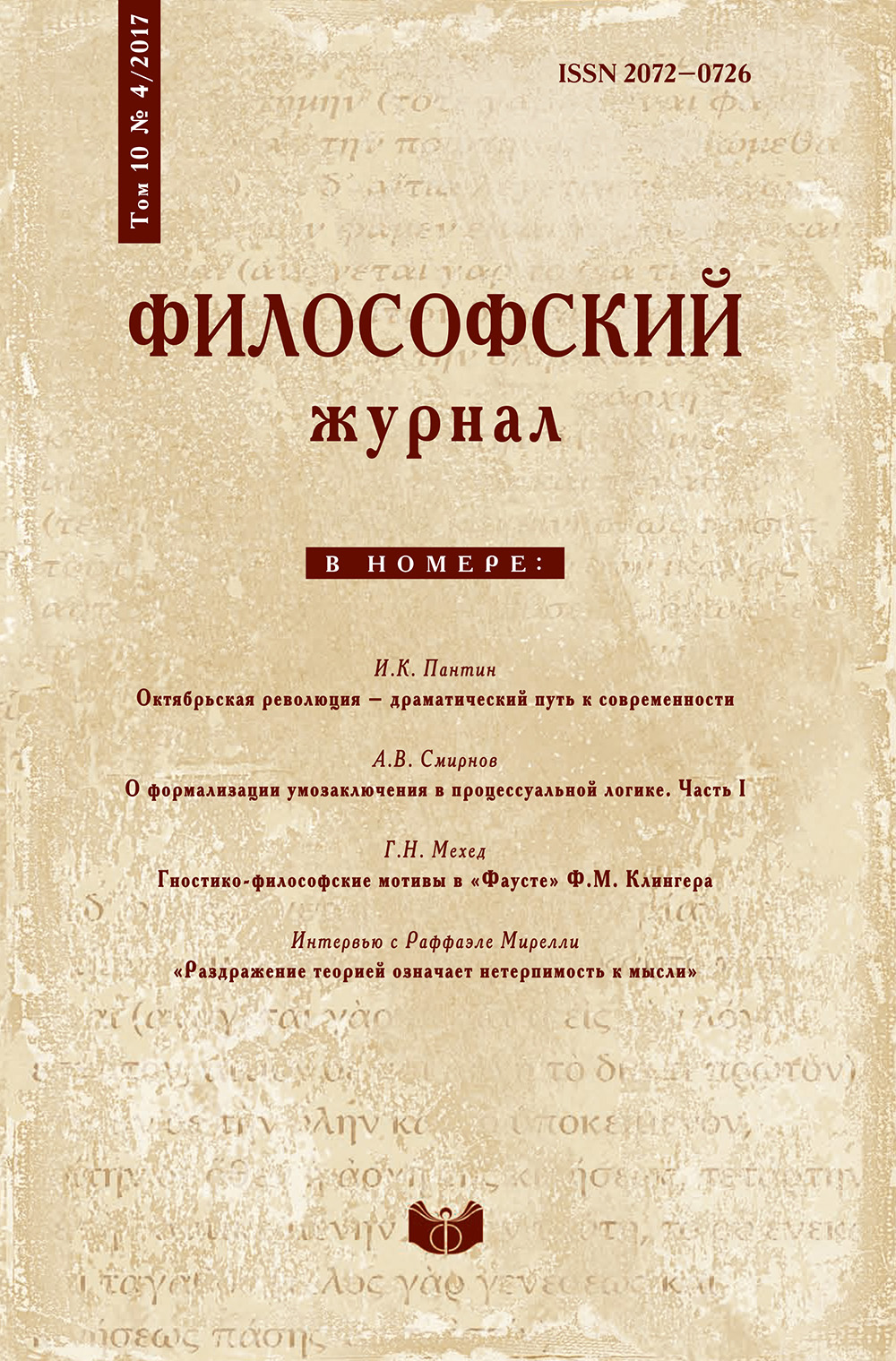October Revolution as a dramatic way toward modernity
DOI:
https://doi.org/10.21146/2072-0726-2017-10-4-5-20Keywords:
revolution, alternative, dictatorship, party, Jacobinism, agency, historical process, autocracyAbstract
The author argues that contemporary disputes over the historical significance of the Russian Revolution of 1917 are influenced not so much by any newly discovered facts about the events, as by the struggle between the opposing views on whether the effects of the October uprising can be regarded as the advent of Russian modernity. The progressive liberal assessment of the October revolution which has been prevalent in Russian-language academic literature rests on the assumption that the way followed by Western European nations in their development is predetermined for all countries, and this is a self-evident 'historical law'. Any dissimilarity, any discrepancy from this pattern of progressive advancement gets considered as a failure to hang on to one's place in the civilization process or as a result of an intervention of a 'non-historical force'. No doubt such an idea of historical development completely neglects the situations where the masses assume the role of true agents of history, as human beings capable of 'self-legislation' and willing to break with the logic imputed by the old order. Moreover, a transformation of this kind is actually provoked in them not by their free will but rather is enforced onto them by the changing circumstances which demand revolutionary action.






